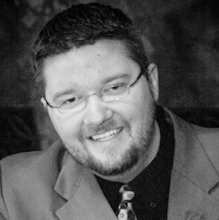We all see things that we think are bad ideas being implemented within organizations. We know that they may not work on our level the way they work in a boardroom. What do we do in these situations? Is it okay to challenge our upper leadership?
Sometimes, asking direct and frank questions are the most difficult things that we have to face in our work day. Kelley, a leader in followership development, makes the point that followers need to take risks. He notes this about effective followers, "They are credible, honest and have the courage to speak up. They give credit where due, but also admit mistakes. They are insightful and candid and they are willing to take risks. They can keep leaders and colleagues honest and informed." Sometimes, our information we provide is not welcomed, but other times, it is needed. This is a bold statement made by Daft that most leaders need to work on. He states, "Good leaders want followers who are willing to challenge them for the good of the organization." Have you ever heard this before in your organization? We often do not.
From what Daft is saying, leaders should want to be challenged about their decisions if it is going against something that is not pragmatic or off base from the mission of the organization. Followers sometimes hold onto a parenting mindset or a hierarchical apprehension when they think about asking bold questions of their leader. They believe that they are supposed to sit back and take directions without question. This mindset holds organizations back from reaching their truest potential. The leaders at the top of the organization should want followers at the bottom to voice their view from their vantage point. It is often because a follower's voice is not heard, that poor decisions are made. This puts a lot of responsibility on the follower, but there should be a lot of responsibility put upon them as well as the leaders. Remember that good followers are not afraid to confront the changes within an organization and work toward reshaping that organization. This is different from being resistant to change, which we will also talk about.
I had to learn this lesson from a friend of mine from the east coast of the U.S. They are more bold there than where I grew up in the Midwestern United States. We have this thing called "Minnesota Nice" which is just a way to say that we are timid to your face, but then bold to slander you behind your back. This trait had to stop in me and I had to lovingly be more bold when I saw areas of indiscretion. I am tired of seeing people getting hurt in organizations, especially the leaders that have to much responsibility put on their shoulders and the followers who are not developed in their current role. This gentleman worked at a University where he was an advisor to the provost. He would tell the provost all the time that his ideas "sucked". Now, that isn't leadership talk, but it was very clear what his position as a follower was. He made himself a partner with the organization instead of feeling as though the Provost was a parent who told him what to do and had the final say. He leveled the playing field. The Provost finally spoke up to him once when he made that comment and said, "Thank you for being so blunt. I miss people being honest with me. I am tired of "yes men". Let us try our best as followers to not be "yes men" or "yes women", but speak up for the sake of the organization, giving our full potential to the mission of it, proving to be an effective follower.
Geoffrey J. Grudzinski

- My Bio:
- After earning his bachelor's degree in Youth and Christian Studies, Reverend Grudzinski began his career as a juvenile intake officer in the juvenile criminal justice and court services system. There he completed more than 400 hours of focused training in youth and adult services and built his expertise in conflict resolution, outreach, and leadership development. A published author and adult learning facilitator, Rev. Grudzinski earned a master's degree in Ministry Leadership and is currently a doctoral candidate at Saint Mary's University of Minnesota conducting research in the area of higher education leadership. A former Eagle Scout, Rev. Grudzinski also sits on the board of directors at a community bank and recently helped his own son's elementary school pursue and secure its accreditation.



No comments:
Post a Comment